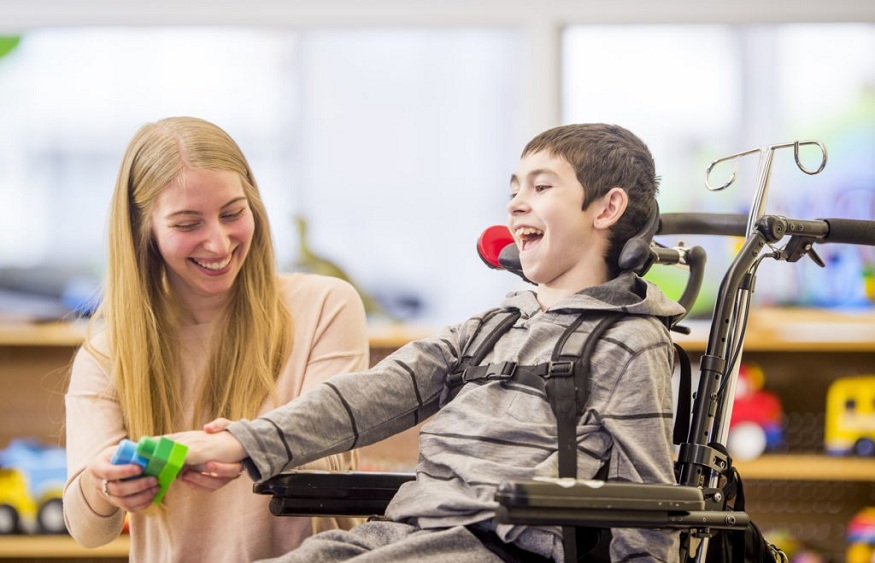What Is the Role of a Specialist in Intervention?

A caregiver is helping a young boy with a physical disability play with plastic block toys.
Family members, friends, and even kids can play an important role in convincing an addicted person to seek medical help. addiction is something that gives temporary relief and permanent damage. If it is not treated at the right time, death is not uncommon. But talking to an addict is not an easy task, especially for a kid. But these young members can make an impact through their words. In such cases, families and friends require the expertise of an interventionist.
Every Intervention specialist must complete extensive training and gain certification before they can mediate an intervention because of the seriousness of their job. Many people look for assistance with interventions either because their prior attempts at intervention failed or because they have issues that need professional advice. Families frequently get in touch with an interventionist to help them send a message of love and support.
Their expertise
It is highly delicate to discuss a drug user’s actions and the harm they have inflicted on others. This topic is frequently treated with animosity, finger-pointing, and denial by most people and these never do any positive thing. The majority of addicts will vehemently dispute the existence of a problem and forcefully maintain their denial. Intervention professionals are trained to respond to these circumstances and give the family the resources they need to overcome this denial. Certified Intervention Specialists have training in the following areas:
- Assessing a person’s addiction history.
- Using successful rebuttal techniques in denial scenarios.
- Convincing an addict to seek treatment and alcohol withdrawal.
- Assembling a coherent group of loved ones and friends to provide support and love.
- Facilitating effective and well-planned interventions.
- Reducing the intensity of potentially violent circumstances or strong emotional reactions.
- Escorting the addicted individual to treatment following a fruitful intervention.






